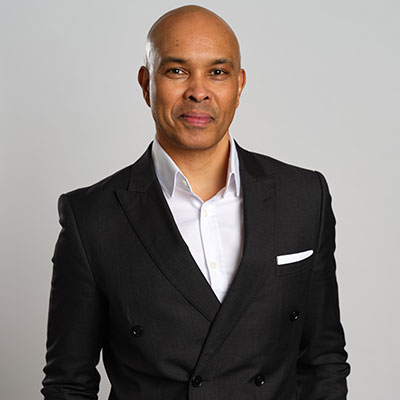Creating a learner's digital passport to better wellbeing


Schools and colleges gather plenty of data about individual learners' wellbeing, but it is often lost when they move to higher education, impacting a university's ability to provide wellbeing support.
The mental health crisis
Mental health disorders in children and young people are increasing year on year, while as many as four in five students are impacted by mental health difficulties, according to the Cibyl mental health research study of 12,000 students from 147 universities.
Universities are being urged to improve student support, not least by the government-appointed student support champion, Professor Edward Peck, vice-chancellor at Nottingham Trent University.
Collaborating with Jisc, his first report in March 2023 was ‘A core specification for engagement and wellbeing analytics’, which showed how data analytics can pave the way to better student wellbeing and reduce pressure on student services.
Edward’s next step is to look into a significant gap – the data that is lost or wasted when a learner moves from one education provider to another, especially from schools and colleges to universities.
In August, Edward is holding a roundtable in partnership with Unite Students, looking at information about individual students held in schools and colleges and by UCAS and whether and how it could be shared with higher education institutions (HEIs).
Jisc will be attending the roundtable and sharing our work on possible digital ways forward to address it.
Mind the data gap
This gap came to the fore in a roundtable Jisc held in March at our Digifest event, bringing together higher education (HE) and further education (FE) leaders to look at the hurdles they face in embedding and using data in their efforts to improve student engagement, performance and wellbeing.
The issue of ‘joining the data dots’ was a key concern. Leaders urged that, “the whole journey needs to be part of the conversation”, while the student representatives expressed frustration with the lack of joined up thinking between the different stepping stones on their educational path to HE.
While schools hold a wealth of data on pupils related to family, disability, health and wellbeing, there are no formal processes for schools (or, indeed, GPs) to share this information with other education providers.
The data colleges receive about young people at enrolment tends to be sparse and relies on existing relationships between the college and local schools. Similarly, data sharing between further and higher education providers is generally poor.
While schools hold a wealth of data on pupils related to family, disability, health and wellbeing, there are no formal processes for schools (or, indeed, GPs) to share this information with other education providers.
While schools hold a wealth of data on pupils related to family, disability, health and wellbeing, there are no formal processes for schools (or, indeed, GPs) to share this information with other education providers.
There is a clear opportunity to better support the transition from one part of the ecosystem to another, lessening the burden on the student to share and enabling providers to put valuable support in place in a more appropriate and timely way.
How technology can help
At the heart of the problem is the task of linking data records across an individual’s lifelong learning journey. It’s not simple, but technology can help and Jisc has been exploring possibilities in relation to the Lifelong Loan Entitlement (LLE).
A portable, verified, unique student identifier could prove a critical piece of the LLE puzzle and support information sharing during educational transitions.
A unique learner number (ULN) currently exists, but its use is inconsistent; it is not used in Scotland or by private schools, for example, and there are issues around data duplication and interoperability.
However, Jisc is using its expertise in digital technical infrastructure and single digital identities to explore how identity management can help create more seamless learner systems.
A portable, verified, unique student identifier could prove a critical piece of the LLE puzzle and support information sharing during educational transitions.
A portable, verified, unique student identifier could prove a critical piece of the LLE puzzle and support information sharing during educational transitions.
For example, the UK Access Management Federation (UKAMF) already provides a single solution to accessing online resources and services for education and research institutions and it is endorsed by Jisc.
If delivered with learner experience and organisational trust at its core, a similarly high-standard solution could be transformational for lifelong learning – and possibly for supporting transitions between institutions in other ways.
A lifelong persistent record based on a single ID number issued on day one at school is proposed in the report on tech-inclusive education published by the Tony Blair Institute for Global Change. It claims that:
“A universal digital learner ID, underpinned by a sufficiently strong regulatory and legal framework setting the terms of use by various parties and, crucially, rights of appeal and redress, would transform the quality and utility of data in education.”
A system that places students firmly in control of their data while streamlining interactions with education systems could indeed be transformational.
Treading carefully
Of course, it is not only a technology problem. There are legal issues to consider, such as GDPR implications if schools share information directly with universities about, for example, disclosure of needs.
There may also be good reasons why students do not want this information shared automatically, an important point raised at our Digifest roundtable.
Some young people see the move to university as a fresh start where they can choose for themselves, for the first time, how they define and present themselves.
There are legal issues to consider, such as GDPR implications if schools share information directly with universities about, for example, disclosure of needs.
There are legal issues to consider, such as GDPR implications if schools share information directly with universities about, for example, disclosure of needs.
A significant minority of disabled students do not disclose their disability to their university because of social stigma, a fear of discrimination, or because they do not identify as ‘disabled’.
These decisions would need to be respected by any data-sharing system, with students’ ownership of their own data a critical element.
However, while remaining sensitive to the personal and legal imperatives, the potential benefits to students of bridging some of these gaps makes it worth exploring.
It won’t be easy. It will require a coming together of policy, technology and leadership to explore and discover what is possible, but it could make a real difference to how institutions can support students from the very start of their university experience.
About the authors

An experienced C-Suite executive serving the further education and skills sector over four decades, I am the UK executive lead for Jisc’s FES policy, stakeholder engagement and services. I lead on Jisc’s strategy for supporting member FES institutions with their digital transformation, focused on thought leadership, enhanced professional practice, data insights, business optimisation and ultimately elevating the student and staff digital experience. I also provide executive leadership on artificial intelligence, advisory and training services for both further and higher education; strategic oversight for FES with the Department for Education in England, the Scottish Funding Council, Medr (Welsh Government) and the Department for the Economy in Northern Ireland on EdTech policy, digital infrastructure planning and investment. Strategic leadership and influence to meet sector wide challenges also focuses my time on the strategic engagement and collaboration with other relevant agencies and digital suppliers.

I am managing director of higher education and research at Jisc and lead HE member engagement through and with Jisc’s account management team.
I am accountable for our HE and research strategies and their implementation. This includes engaging with senior sector stakeholders and, internally, working closely with Jisc’s product directorates to ensure we meet sector needs.
Alongside my role as managing director I am responsible for Jisc’s digital content and software negotiations, its provision of discovery services and its work in open research. My particular interest in the development of partnerships and collaborations at Jisc has seen me work with tertiary education, funders, cultural bodies, international organisations and the health sector to improve access to knowledge and information to support education and research.